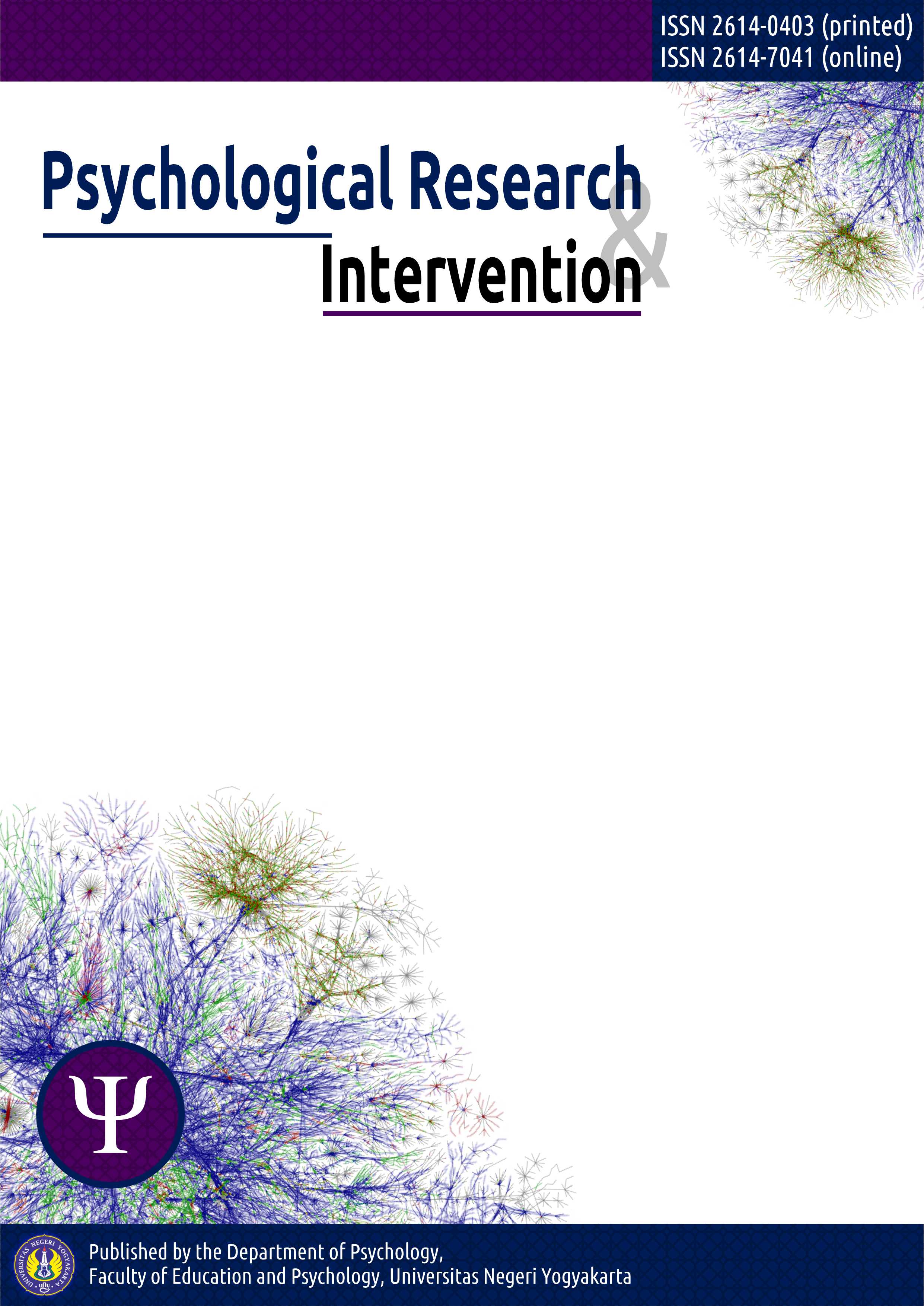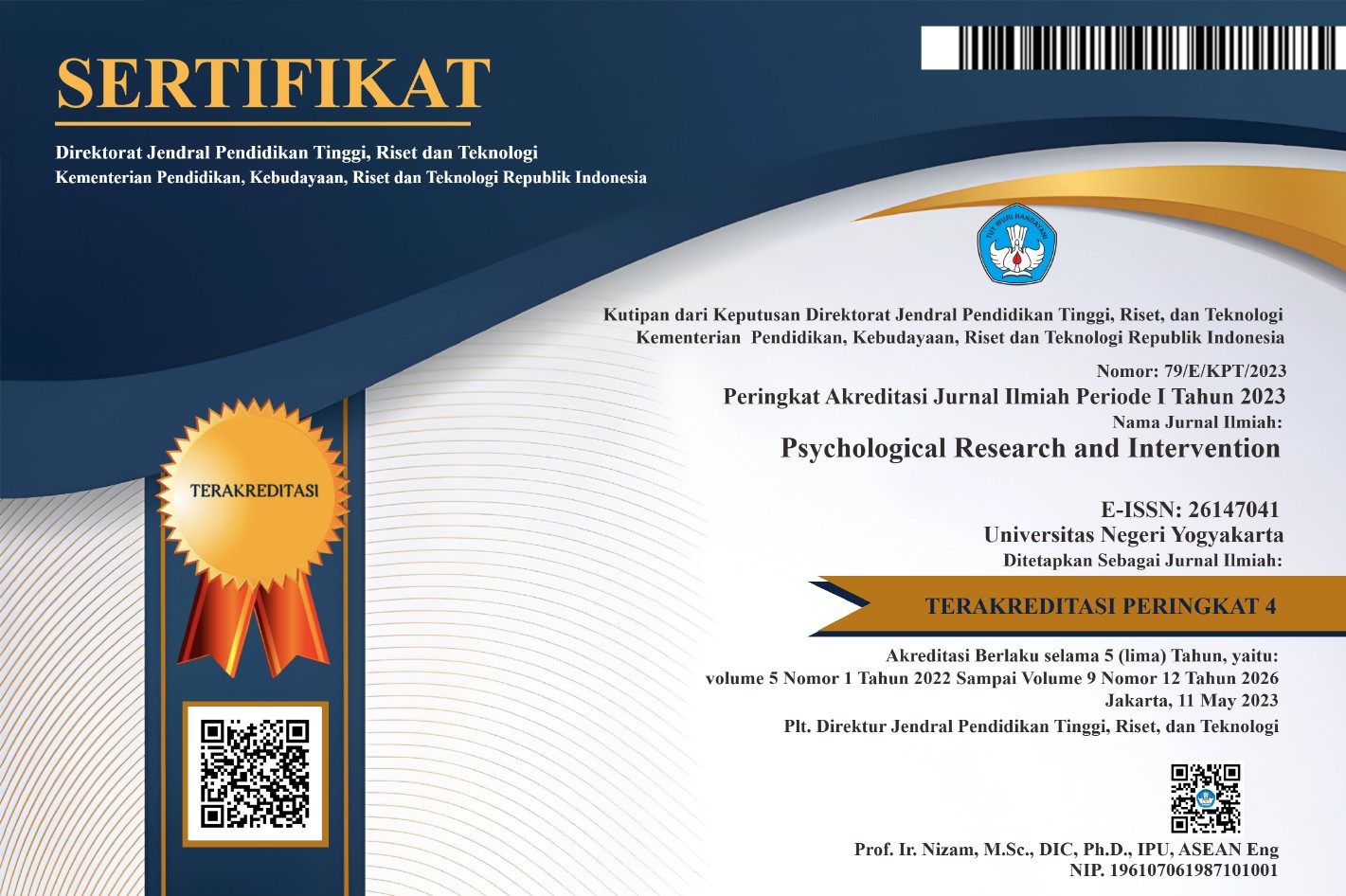The role of transformational leadership on organizational commitment through the mediation of psychological well-being
DOI:
https://doi.org/10.21831/pri.v6i1.61753Keywords:
organizational commitment, transformational leadership, psychological well-beingAbstract
This study aims to determine the role of transformational leadership on organizational commitment through the mediation of psychological well-being. Techniques of data collection is done through a survey by spreading scale consisting of organizational commitment, transformational leadership, and psychological well-being scale. Subjects in this study were 118 employees of the company construction in Yogyakarta areas. Data analysis was done by using multiple regression analysis. The analysis showed that the role of transformational leadership on organizational commitment fully mediated by psychological well-being with regression coefficient path c ' = 0.219 which is smaller than the regression coefficient path c = 0.376. This suggests that the role of transformational leadership as an independent variable on the organizational commitment as a dependent variable is reduced and becomes not significant with p ≥ 0.01 after controlling for variables mediator psychological well-being.
References
Check, J. & Schutt, R. K. (2012). Research Methods in Education. Boston: SAGE Publications, Inc.
Harter, J. K., Schmidt, F. L., & Keyes, C. L. M. (2002). Well-being in the workplace and its relationsgip to business outcomes: A review of the Gallup Studies. Flouring: The Positive Person And The Good Life, 9, 205-224.
Kelloway, E. K., Turner, N., Barling, J., & Loughlin, C. (2012). Transformational leadership and employee psychological well-being: The mediating role of employee trust in leadership. Work & Stress, 26 (1), 39-55.
Lissy, T. A., & Venkatesh, J. (2014). Factors that influence the organizational commitment–a case of paramedical staff at private hospitals. International Journal Of Multidisciplinary Approach And Studies, 1 (6), 195-206.
Nasrulloh, U., U. (2015). Nilai Pasar Konstruksi 2015 Diperkirakan Mencapai Rp 446 Triliun. http://www.pikiran-rakyat.com/node/311269. Diakses pada 20 Maret 2015.
Nielsen, K., & Munir, F. (2009). How do transformational leaders influence followers' affective well-being? Exploring the mediating role of self-efficacy. Work & Stress, 23 (4), 313-329.
Nugraha, A. B. (2015). Jasa Konstruksi Siap Hadapi MEA 2015. http://www.tribunnews.com/bisnis/2015/03/01/jasa-konstruksi-siap-hadapi-mea-2015. Diakses pada 4 Maret 2015.
Sharifirad, M. S. (2013). Transformational leadership, innovative work behavior, and employee well-being. International Network of Business and Management, 1, 198-225
Suanda, B. (2015). 2015 dan Rencana HEBAT Konstruksi Indonesia. http://manajemenproyekindonesia.com/?p=2990. Diakses pada 4 Maret 2015
Widodo, R. (2010). Analisis Pengaruh Keamanan Kerja dan Komitmen Organisasional terhadap Turnover Intention serta Dampaknya pada Kinerja Karyawan Outsourcing. Tesis (Tidak diterbitkan). Semarang: Universitas Diponegoro.
Wright, T. A., & Bonett, D. G. (2007a). Job satisfaction and psychological well-being as nonadditive predictors of workplace turnover. Journal Of Management, 33 (2), 141-252.
Wright, T. A., & Bonett, D. G. (2007b). The effect of turnover on work satisfaction and mental health: Support for a situational perspective. Journal of Organizational Behavior, 13 (6), 603-615.
Yang, M. (2012). Transformational leadership and Taiwanese public relations practitioners' job satisfaction and organizational commitment. Society For Personality Research, 40 (1), 31-46.












